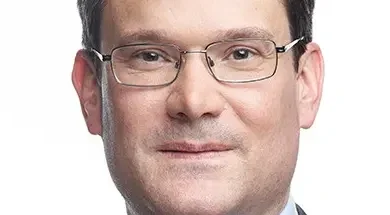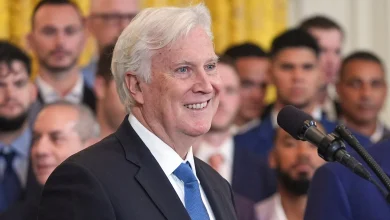Gary Oldman Disappeared Into His Greatest Role in This 86% RT War Drama

Gary Oldman is an actor with a diverse range of roles. The British performer is known for his versatility and ability to live the characters he plays in films and TV shows. His performance in Apple TV+’s Slow Horses as Jackson Lamb, which recently entered its fifth season on September 24, is the latest example of his brilliant screen presence. As the show’s espionage maestro, Oldman slips into the skin of a disheveled, foul-mouthed antihero, a character who instantly takes us back to one of his earlier turns as a man driven by ego, impatience, and unapologetic rudeness.
In 2016, Oldman earned his first Academy Award in a Leading Role for playing one of the most influential yet controversial political figures of all time. In Joe Wright’s Darkest Hour, Oldman disappeared into the world of Winston Churchill, as he played him with all his might. For anyone who has seen the film, they must know that there were moments when it was hard to tell if that’s Oldman or Churchill himself on the screen when he shouts, ‘Will you stop interrupting me when I am interrupting you?’ Oldman was transformative. He understood the mannerisms, voice, psyche, wit and the politics of Britain’s wartime prime minister, and therefore he became Churchill.
Gary Oldman’s Transformation Fooled Everyone
Image via Focus Features
Playing Winston Churchill is a huge challenge for any actor. He is a figure so well-documented, so often imitated, that he can easily become a caricature. When it was announced that Gary Oldman would be taking on the role, the question was not whether he could do it, but how he would do it. The first images that were released provided a stunning answer. The man on the screen was not Gary Oldman wearing makeup; he simply was Winston Churchill.
The physical transformation, which earned the film an Academy Award, was a massive undertaking. Oldman spent over 200 hours in the makeup chair, with the legendary artist Kazu Hiro applying a new set of silicone prosthetics every single day. But the real genius of the transformation was that it was designed to be a second skin, not a mask. Hiro famously left Oldman’s eyes, forehead, and mouth largely uncovered, allowing the actor’s own expressive features to do the real work.
But the physical construction was just the foundation. To build the character from the inside out, Oldman famously spent a full year studying Churchill, listening to his radio speeches to capture not only the famous accent but also the unique rhythm and cadence of his voice. These vocal characteristics and mannerisms are on full display in his early scenes with his new secretary, Elizabeth Layton (Lilly James).
When we first meet him, the scene immediately follows a parliamentary hearing where the current Prime Minister of the UK was forced to resign, and rumors are circulating about who will be the next leader. When the outgoing PM, Neville Chamberlain, suggested Churchill’s name, not many seemed to be ecstatic about the choice and straight criticisms of him were being tossed around. Hence, even if you, as an audience member, were not aware of Churchill’s reputation in the political halls of Britain, the film offers you a buildup to this man of the hour.
Coming back to his first appearance, before Layton enters his room, she is warned about how particular he is about his speeches and how he wants them to be written. As she enters, Churchill is every bit the intimidating bulldog of the historical record, gruff, demanding, and prone to explosive bursts of temper that leave her terrified. He dictates speeches from his bed, cigar in hand, a whirlwind of impatient energy. It’s in these moments that Oldman lays the groundwork, perfectly establishing the formidable and difficult public figure before he begins to peel back the layers to reveal the vulnerable man underneath.
Oldman Masters the Art of Disappearing
Gary Oldman as Winston Churchill in Darkest Hour, looking out the window of a military aircraft.Image via Focus Features
Because the film is set in the most challenging times of Churchill’s political career, the stakes for Oldman were really high. Darkest Hour was a way to show the world what went on behind the scenes during one of the most challenging periods for the United Kingdom, forcing a nation to face existential threats, and Churchill was at the center of it. Hence, a lot of hard work was required from Oldman’s end.
There was an immense amount of pressure and fear attached to this role, and it was also felt by Oldman himself before he said yes to the job. “You can draw a silhouette of this person, and you know who this person is. You know what he looks like; he is mythologized, he is an icon. What I was concerned with is how do you find the man?” he once shared during an interview. However, it’s fair to say that Oldman did find this man because in the scenes where the weight of the world comes crashing down on Churchill, he shines.
In one of the film’s most powerful scenes, after making the brutal decision to sacrifice a garrison of 4,000 British soldiers at Calais to save the larger army at Dunkirk, Churchill is completely alone. The camera finds him in a small, dark room, the weight of his choice etched on his face. The booming, confident voice is gone, replaced by a broken whisper as he struggles to justify the loss of life. At this moment, Oldman shows the audience the terrible human cost of leadership, a side of the historical icon that is rarely ever seen. This emotional journey culminates in his legendary “We shall fight on the beaches” speech to the House of Commons.
When Oldman delivers it, it does not come as a recitation of famous words; it feels and sounds as if you are watching a piece of actual history unfolding, not a film scene. Oldman was an actor who had already made a career out of losing himself in roles. Characters like the spy George Smiley in the realistic spy film, Tinker Tailor Soldier Spy, the iconic villain Stansfield in Léon: The Professional, and the legendary vampire in Bram Stoker’s Dracula are a few examples of his craft. However, in Darkest Hour, that skill reached its peak. Speaking about his approach to being Churchill, he once said:
“I learned it like a play. I knew it long before I got to the set so I’d just have the material inside me and wouldn’t have to think about it. It’s like the old saying, ‘It’s not how well you’ve known something, but how long you’ve known it,’ so the role was in my DNA.”
Winston Churchill’s Family Approved of Oldman’s Performance
Gary Oldman as Winston Churchill makes the victory sign in Darkest HourImage via Focus Features
The result of this incredible effort was a performance that was met with universal acclaim from critics, audiences, and even the family of the man he portrayed. Several critics hailed the performance as a landmark in acting, noting that Oldman didn’t just imitate Churchill; he inhabited him, capturing every contradiction of the man’s complex personality.
Michael Bishop, who is the executive director of the International Churchill Society, also saw the film. In an online review, he wrote, “Gary Oldman inhabits the role of Churchill, capturing his wit, grit and determination and even his impish smile.” The praise was so strong that many argued Oldman’s performance single-handedly elevated the film from a well-made historical drama into a thrilling and essential piece of cinema.
Oldman’s work was no longer seen as a highlight of the film, but as the primary reason for its dramatic success and emotional power. This sentiment was shared by those who knew the real Churchill best. Churchill’s own family members, like his great-grandson, were also full of praise for Oldman’s ability to capture the true essence and spirit of the man. “We’re always a little bit nervous about these ventures, but I can say wholeheartedly, Gary, Kristin Scott Thomas, and Ben have absolutely done us so proud,” Randolph Churchill said.
This is perhaps the most powerful receipt a performance like this can get. The final and most definitive verdict, however, came from the film industry itself. After a long and legendary career full of iconic roles but often overlooked by the Academy, Gary Oldman finally won the Oscar for Best Actor. It was the industry’s ultimate validation of a once-in-a-lifetime performance, the final confirmation that what he had achieved was not just a great role, but a lasting piece of cinematic legacy.
Darkest Hour
Release Date
November 22, 2017
Runtime
125minutes
Director
Joe Wright
Writers
Anthony McCarten





